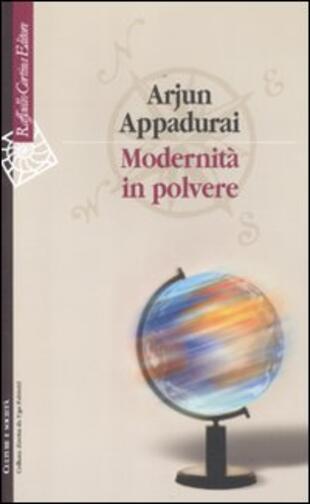

Sinossi
Ci sono più modi di nominare la globalizzazione - mondializzazione, interconnessione planetaria, interdipendenza universale - ma il senso è uno: il mondo è divenuto più complesso e se da un lato si sono ridotte le distanze fisiche, dall'altro si sono create fratture profonde, politiche e culturali, tra e dentro gli stati nazionali. Questo squilibrio ha aperto una crisi di legittimità che mina alla base le democrazie nuove e antiche. "Modernità in polvere", che è già un classico delle scienze sociali, risponde alle sfide teoriche e metodologiche della globalizzazione guardando al mondo non più come a un insieme di oggetti culturali statici (nazioni, economie, demografie, istituzioni), ma come a un sistema di flussi in movimento che trasportano attraverso il pianeta persone, denaro, immagini, tecnologie e ideologie. Quando trovano spazi locali in cui assestarsi, questi flussi subiscono un processo di indigenizzazione, ovvero un processo in cui devono necessariamente ricostruire la propria specificità. In tal modo si genera nuova differenza anziché omologazione, ed è nell'osservazione minuziosa di questo progressivo differenziarsi che la ricerca etnografica recupera il proprio senso originario e il proprio valore.
- ISBN:
- Casa Editrice:
- Pagine: 287
- Data di uscita: 05-10-2011
Recensioni
The title purposefully reads like a wanted poster and I do love that.
From the Culture Studies notes: Appadurai (1996): - Reflects on the sense of nostalgia that is part and partial of what makes identity identity. The sense of longing for what we think we are and for how we would like to think of ourselves, makes identity appear elsewhere. We, in other words, are else Leggi tutto
Perhaps a perfect encapsulation of 1990s theory on globalization, modernity, and the nation-state. Appadurai is maybe a little too certain that the n-s is on its last legs, but his concepts of the various "scapes" that heavily influence cultural formations around the world and his sense that imagina Leggi tutto
This is another formative book in my career as a grad student. Appadurai is often vague, and this is problematic to understanding the nuances of transnational identity, but his creation of the 'scapes' is an immensely useful set of concepts and travel outside anthropological literature quite well.
"One man's imagined community is another man's political prison."
I'm afraid I liked it less and less the more I read. The central idea about the connection between imagination and globalization is fascinating and, I think, convincing, but the chapters that provided case studies on smaller elements of Appadurai's argument didn't add much. I'm also getting sick of
A really compelling account that attempts to theorize - while still asserting the essential dependence on specific context - the function of the persistence of the local in a global society, attentive to the ways in which the former imaginatively construct the latter, the latter delimits and shapes
A great work of anthropology that provides a novel framework for envisioning the post-nation, while assessing how localities become transnational in an interconnected world of 'disorganised' capitalism. The concept of 'scapes'; ideoscapes, mediascapes, ethnoscapes - is something that Appadurai introd Leggi tutto
Citazioni
Al momento non ci sono citazioni, inserisci tu la prima!























